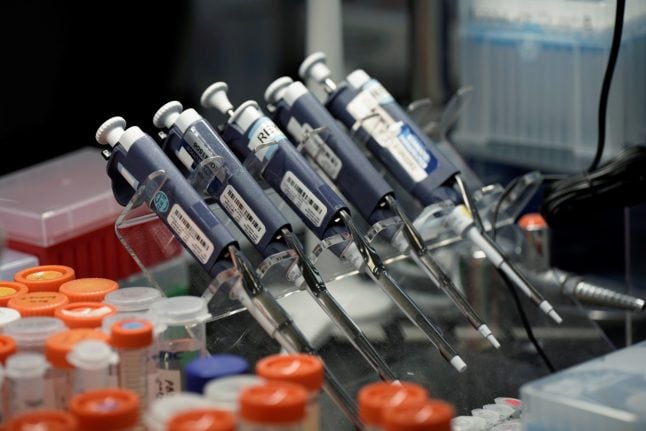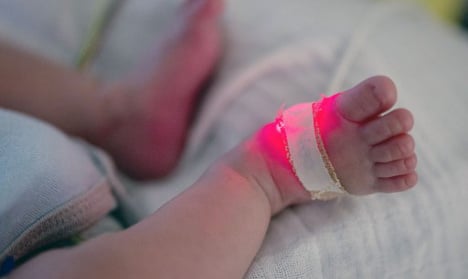DRUG
Danish biotech firm starts human trials for new Covid drug
The Danish biotech company Union Therapeutics has been given the go-ahead to begin clinical trials on humans for its coronavirus medicine which early studies show is more than 40 times more effective than Remdesivir.
Published: 3 July 2020 12:03 CEST

Niclosamide is one of hundreds of promising new drugs. Sorrento Therapeutics in San Diego, California, is working on an antibody drug. Reuters/Scanpix/Bing Guan
Dr Rasmus Toft-Kehler, chief executive and co-founder of the company, credited the “amazing period” that saw the medicine rushed through preliminary trials.
“The team, including all stakeholders, partners… and not least regulatory authorities, have acted with passion and in concert to advance UNI911 at an incredible pace,” he said in a press statement.
“We are honoured to be part of this venture and excited to be at the cusp of initiating clinical studies with the ultimate goal of making a differentiated product available for patients in need”.
The drug UNI911, or niclosamide, will be tested at the Zelo Phase I Unit at Bispebjerg and Frederiksberg Hopsital and at the Center for Physical Activity Research at Rigshospitalet.
“It is a drug that can kill the virus and prevent it from dividing inside the body,” Morten Sommer, a professor at DTU Biosustain and the co-founder of Union, told TV2.
“Previously, it has been used to treat bowel diseases such as tapeworms, but we have found out how the drug can come out and work elsewhere in the body.”
In studies from South Korea, niclosamide has proven 40 times more potent than the drug Remdesivir, which has otherwise been considered the most effective drug for treating Covid-19.
Sommer expects the development of the drug to move into the second phase this autumn.
“It is still early in the process, but we think the characteristic we have seen of the drug seem really promising, and if the results continue to come in, we hope that it has great opportunity to contribute to the treatment of both Covid-19 and also other similar diseases.”
Url copied to clipboard!


 Please whitelist us to continue reading.
Please whitelist us to continue reading.
Member comments